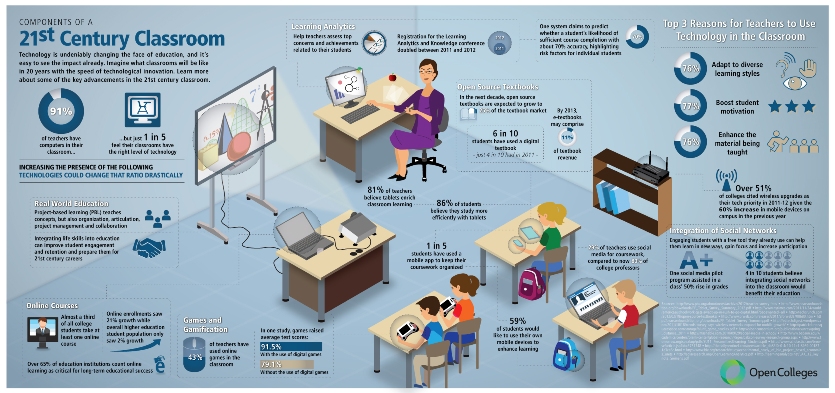How mobile online education facilitates change
Mobile online education is rapidly changing K-12 education in the 21st century. In 2013, Project Tomorrow conducted a Speak Up Survey. Respondents included 325,279 students, 32,151 teachers and librarians, 39,986 parents, 4,530 district administrators and 1,346 community members. According to the results, more students have access to their own mobile phones.
Students are using these devices to help them perform their daily tasks more efficiently. Mobile online education transforms the way students learn in school. Sixty percent of students are using mobile devices for anytime research. Forty three percent of students use them to play educational games. Forty percent of students use them to collaborate with their fellow classmates.
Thirty-three percent of students surveyed use mobile phones for reminders and alerts related to school, 24 percent for taking photographs of their assignments and 18 percent for in-class polling. Twelve percent of the students reported using their mobile phones to text questions to their teachers while in class. It is unknown how many teachers respond to these text questions.
Speak Up reports also examine how Mobile Learning Explorer teachers and administrators use mobile devices in school to help their students learn. This group of educators, a subset of the national data, has positive experiences using mobile online education technology in their classrooms. These educators view the use of mobile devices such as smartphones or mobile computers as an integral part of their vision for the 21st century school.
One teacher validates the effectiveness of mobile phone technology in the classroom
Liz Kolb, a former middle and high school social studies teacher, was once a teacher who “didn’t see value of cell phones on campus.” Now she believes there are ways to use a mobile phone as “an anytime, anywhere, data-collection tool.”
As a technology coordinator, Liz Kolb was doing a blogging activity with a group of teachers when a message appeared on her screen. The message told her she could create an audio-blog with her cell phone. According to her, “It was the easiest podcast I every mad. I said, ‘Wouldn’t this be a great way to do podcasts as homework!’ It was a real ah-ha moment.”
When she searched for resources on using mobile phones in the classroom, she didn’t find any. Instead, she explained, “I just started playing around.” What she came up with was many ways educators and parents could use cell phones to enhance learning outside of the classroom and as part of mobile online education.
Mobile online education in the classroom
For example, in science classes eighth graders are learning about ecosystems. The students are asked to take photos of insects using their mobile phones. Students will study these pictures later in class. Liz Kolb explains, “There is a genuine excitement about the lesson because they can use their own cell phone.” When students can connect their individual cultures with what is happening in school, education becomes more meaningful to them.
At Explorer Middle School (AZ) 8th grade science, students work in teams and use their smartphones to collect data during science experiments. The students enter their data into Google Docs™ using their smartphones and then send the data to the class website.
In Onslow County School District (NC), high school students participating in the Project K-Nect pilot program solve interactive math problem-sets in their classrooms. The students use the video, instant messaging and blogging capabilities of the district provided smartphone to discuss real-world math applications and strategies for solving problems in their algebra, geometry and calculus classes.
Studies show how kids use mobile phone technology to learn new concepts
A recent study funded by the Department of Education, studied the link between learning and the PBS Kids educational gaming app, Martha Speaks Dog Party. The study found that after children had used the app every day for two weeks, the vocabulary of Title 1 children between three and seven years old improved by as much as 31 percent.
A similar study, conducted at the Abilene Christian University, centered upon the use of the Statistics 1 app. Students used the app both in class and outside of class. They said that this app helped them to understand what they were learning. It also helped motivate them to learn more while using the app. The instructors agreed with this observation and added that the students were also better prepared for classes.
Mobile online education resources that include the use of mobile phones and mobile apps benefit students in many ways. Studies help demonstrated the academic potential that mobile learning devices have when it comes to enhancing the quality of the learning process for students. Mobile phones are active, versatile and motivating learning tools. Mobile devices help students to stay engaged and motivated in and after school. Research shows that academic performances can improve.










